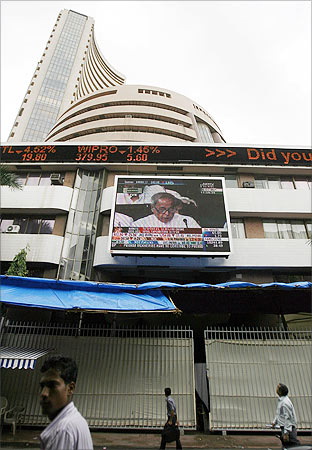 | « Back to article | Print this article |
 The auto sector has been among the worse-hit in terms of sales in the past two years. This financial year is likely to see unit sales declines across most segments, the first time in a decade.
The auto sector has been among the worse-hit in terms of sales in the past two years. This financial year is likely to see unit sales declines across most segments, the first time in a decade.
The industry body, SIAM, projects sales are likely to remain muted through the first half of FY15 as well.
The factors underlying this performance are easy to find. High interest rates have hit both consumer demand for vehicles and input costs. Low economic growth has also meant commercial vehicle sales have slowed sharply.
There have been a few silver linings. A mild revival in the components segment has been noted in the past few months, as the rupee's weakness versus the dollar has made exports more competitive.
Maruti has gained due to the weaker yen that has reduced the cost of components imported from Suzuki.
Tata Motors has survived on the basis of a better performance from Jaguar-Land Rover. A decent agricultural performance could lead to better off-take in the rural market, especially tractors. But the overall scenario remains gloomy.
The 15-company CNX Auto Index doesn't accurately reflect the poor fundamentals of the situation. The CNX Auto is up around nine per cent in the past year - an under-performance compared to the Nifty, which is up 19 per cent - but, nevertheless, a positive return.
The best return has been delivered by Eicher Motors, up almost 90 per cent. The two tyre majors, MRF and Apollo, are also up by substantial amounts and so is Bharat Forge.
Tata Motors, Maruti and Hero are also on the plus side of the ledger. The rest of the auto index has made either nominal gains or major losses.
Obviously, there are major differences between companies and one would ideally also look at other aspects of the auto-value chain such as consumer finance businesses that hypothecate vehicles.
An auto-ancillary could do well based purely on exports. A tyre or battery manufacturer might do well when for example, rubber or lead prices are low, because margins expand. But such a situation (low rubber/lead prices) might have no correlation with car sales.
However, there is broadly a correlation between higher vehicle sales and ancillary performance.
We do know the auto industry is extremely cyclical and shareprices of auto and auto-related businesses tend to double or treble or gain in even larger multiples during upswings in the cycle.
We also know the cycles tend to be fairly long. As with all shares, prices tend to anticipate future events. If the industry does turn around in say, the third quarter of FY15, a year or so down the line, there could be concerted buying in late 2014.
If there's a breakdown in share price caused by political volatility during the elections, the auto sector could be available at very attractive valuations.
There is a case for waiting for a possible period of bearishness. There is also a case for buying now, at moderate valuations, and averaging later if prices do drop sharply.
The author is a technical and equity analyst.